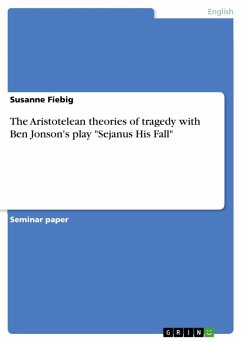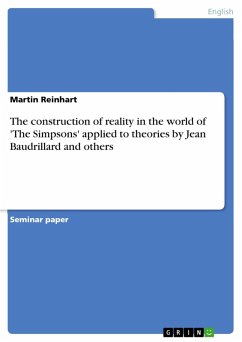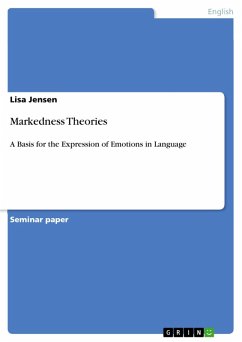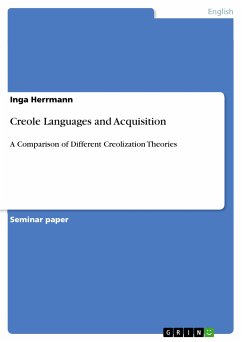Seminar paper from the year 2005 in the subject English Language and Literature Studies - Literature, grade: 1, University of Würzburg (Institut für Anglistik und Amerikanistik), course: English Tragedies, language: English, abstract: Drama has always fascinated people. Seeing other people's fates presented on stage has for ages held an incredible attraction for the audience because it not only satisfies human curiosity, but it also functions as a means by which dramatists can take up current and relevant issues of the time and visualize these concerns in a comprehensible as well as literarily graspable way. Witnessing the action on stage and riding on an emotional 'roller coaster' during the play can lead to a certain relief at the end of the dramatic built-up, a relief of emotional stress. Human beings have developed two ways to handle this reduction of tension: laughing and crying. According to Aristotle, tragedy, in particular, is to evoke pity and fear when seeing the tragic hero fall and make the audience leave the theatre clarified and purified by this experienced catharsis. Aristotle uses this term in a medical sense. For him, fear (phobos) arouses the audience to an emotional climax, pity (eleos) breaks down the bottled-up sensations and leaves the audience pleased and relieved by this 'controlled working off'2. Gelfert defines tragedy as a 'societal psychotherapy'. When we accept this definition of tragedy as an attempt to assimilate social tension in general, the production of tragedies must have had its peak in times of intense political, social, religious and other tensions in particular. Gelfert calls such a place a seismic centre where two ideological plates collide, leading to an eruption in the form of a tragedy. One of these tragic ruptures took place in the seventeenth century, at the transition from Elizabethan to Jacobean England. Political events as well as social and religious changes caused the people to be captured in between an old and a new order. Due to ongoing wars as well as inner and outer political issues, the arising Renaissance came to England much later than to continental Europe. Therefore, the medieval conception of the world was still very common and widespread, while the new ideology was moving in. This paper investigates the Aristotelean theories of tragedy with Ben Jonson's play "Sejanus His Fall", particularly the issue of the tragic hero.
Dieser Download kann aus rechtlichen Gründen nur mit Rechnungsadresse in A, B, BG, CY, CZ, D, DK, EW, E, FIN, F, GR, HR, H, IRL, I, LT, L, LR, M, NL, PL, P, R, S, SLO, SK ausgeliefert werden.









